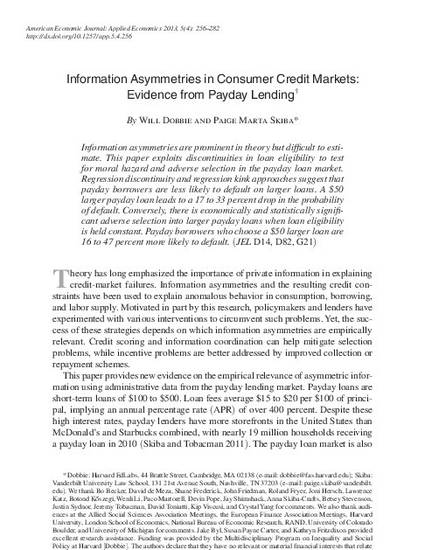
Article
Information Asymmetries in Consumer Credit Markets: Evidence from Payday Lending
American Economic Journal: Applied Economics
Document Type
Article
Publication Date
1-1-2013
Keywords
- payday lending,
- consumer credit,
- short-term loans,
- information asymmetries
Disciplines
Abstract
Information asymmetries are prominent in theory but difficult to estimate. This paper exploits discontinuities in loan eligibility to test for moral hazard and adverse selection in the payday loan market. Regression discontinuity and regression kink approaches suggest that payday borrowers are less likely to default on larger loans. A $50 larger payday loan leads to a 17 to 33 percent drop in the probability of default. Conversely, there is economically and statistically significant adverse selection into larger payday loans when loan eligibility is held constant. Payday borrowers who choose a $50 larger loan are 16 to 47 percent more likely to default. (JEL D14, D82, G21
Citation Information
Paige Marta Skiba and Will Dobbie. "Information Asymmetries in Consumer Credit Markets: Evidence from Payday Lending" American Economic Journal: Applied Economics Vol. 5 (2013) p. 256 ISSN: 1945-7790 Available at: http://works.bepress.com/paigemarta-skiba/4/
